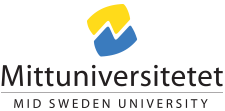Curriculum: Master in Electronic Systems and Instrumentation, 120 credits
General data
Code: TEIAA
Cycle: Second cycle
Ref no: 2007/123
Credits: 120
Answerable department: Department of Electronics Design
Answerable faculty: Faculty of Science, Technology and Media
Latest review: 3/22/2016
Version valid from: 7/1/2016
Aim
The objective of this programme is to give deep knowledge in electronics devices and systems with a focus on sensor systems. The programme provides knowledge, methods, and tools for modeling and design of components, circuits, and systems. A theoretical base is given that covers a wide field within electronics system designs, from semiconductor technology to design of embedded systems. The different areas are integrated in order to give a good understanding of the different technologies possibilities and limitations. The student’s knowledge and understanding of the different technologies is strengthened by independent problem solving for specific technological problems.
Programme objective
LEARNING OBJECTIVES ACCORDING TO THE HIGHER EDUCATION ORDINANCE
Knowledge and understanding
For a Master of Arts/Science (120 credits) the student shall
- demonstrate knowledge and understanding in the main field of study, including both broad knowledge of the field and a considerable degree of specialised knowledge in certain areas of the field as well as insight into current research and development work, and
- demonstrate specialised methodological knowledge in the main field of study.
Competence and skills
For a Master of Arts/Science (120 credits) the student shall
- demonstrate the ability to critically and systematically integrate knowledge and analyse, assess and deal with complex phenomena, issues and situations even with limited information
- demonstrate the ability to identify and formulate issues critically, autonomously and creatively as well as to plan and, using appropriate methods, undertake advanced tasks within predetermined time frames and so contribute to the formation of knowledge as well as the ability to evaluate this work
- demonstrate the ability in speech and writing both nationally and internationally to report clearly and discuss his or her conclusions and the knowledge and arguments on which they are based in dialogue with different audiences, and
- demonstrate the skills required for participation in research and development work or autonomous employment in some other qualified capacity.
Judgement and approach
For a Master of Arts/Science (120 credits) the student shall
- demonstrate the ability to make assessments in the main field of study informed by relevant disciplinary, social and ethical issues and also to demonstrate awareness of ethical aspects of research and development work
- demonstrate insight into the possibilities and limitations of research, its role in society and the responsibility of the individual for how it is used, and
- demonstrate the ability to identify the personal need for further knowledge and take responsibility for his or her ongoing learning.
LEARNING OBJECTIVES FOR MASTER IN ELECTRONIC SYSTEMS AND INSTRUMENTATION
Upon completion of the education, the student should:
- Be able to based on a given problem in electronics select the optimum technology and process
- Be able to analyze problems in the specification, design and verification of digital systems
- Implement a digital function within a larger system
- Be able to analyze a technology problem and based on that plan and document knowledge acquisition and implementation of the project
- Understand the different technological possibilities and limitations of a system
Content
The programme consists as follows:
Electrical Engineering BA (AB):
Introduction to Semiconductor Technology, 6 Credits
Metrology, 6 Credits
Digital System Design with VHDL, 6 Credits
Elective course, 7.5 Credits
- Option 1: Microprocessor Systems Design
- Option 2: Programming Embedded Systems
Electronics MA:
Applied Digital Filters, 3 Credits
Sensor Components, 6 Credits
Applied Sensor Systems, 9 Credits
Sensor Networks, 7.5 Credits
Machine Vision Systems, 6 Credits
System Modelling, 3 Credits
Studies at another University, 30 Credits
Master's Thesis Work in Electronics, 30 Credits
Entry requirements
Degree of Bachelor, Degree of Bachelor of Science in Engineering (at least 180 Credits), or equivalent, in Electronics Engineering/Electronics, Computer Engineering, Physics or Mathematics, with at least 22.5 Credits (22.5 ECTS) in Mathematics/Applied Mathematics and at least 15 Credits (15 ECTS) in Electronics Engineering.
English course 5/English course A from Swedish Upper Secondary School (Gymnasium) or the equivalent.
Descripion of programme
The educational programme is a full-time programme for two years, including a half year master thesis project.
Selection rules and procedures
The selectionprocess is in accordance with the Higher Education Ordinance and the local order of admission.
Programme with restricted admissions
Prerequisites for courses are given in their respective syllabus.
Teaching and examination
The study programme is given as a full-time programme and the teaching is given as lectures, laborations, projects, and seminars. All courses are given at campus. Parts of the studies are project-oriented. The students are trained to solve problems in a systematic way of increasing level of difficulty. There are written and oral exams. The gradings are given in the syllabi. The language of instruction is English.
The examination procedures are stated in the syllabus of each course.
Title of qualification
Degree of Master of Arts/Science (120 credits)
Masterexamen med huvudområdet elektronik, translated into Degree of Master of Science (120 credits) with a major in Electronics or Teknologie masterexamen med huvudområdet elektronik, also translated into Degree of Master of Science (120 credits) with a major in Electronics, if the student has at least 30 credits in the subject of Mathematics.
Other information
During the time of the studies the course names, contents, credit units, and schedules may change. There are some possibilities to select courses. The procedure for selecting courses and available courses will be locally announced for the respective programme. To be admitted to a selectable course, the student has to be qualified.
